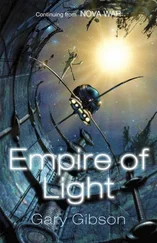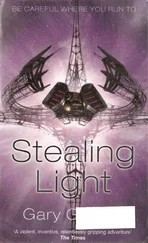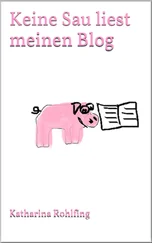I think this is the only way to explain what happens to my own sentences during those very rare occasions when I am writing the way I want to write, and it seems to account for how sentences by writers I admire have arisen from the alphabet. The aim of the literary artist, I believe, is to initiate the process by which the words in a sentence no longer remain strangers to each other but begin to acknowledge one another’s existence and do more than tolerate each other’s presence in the phrasing: the words have to lean on each other, rub elbows, rub off on each other, feel each other up. Among contemporary writers of fiction, there are few who have reliably achieved what I am calling an intra-sentence intimacy with more exquisiteness and grace than Christine Schutt, especially in her novels Florida and Prosperous Friends and in her second collection of short stories, A Day, a Night, Another Day, Summer .
Let’s first look inside only a four-word phrase of hers.
In her story “The Blood Jet,” Schutt ends a sentence about “life after a certain age” by describing it capsularly as “acutely felt, clearly flat”—two pairs of words in which an adverb precedes an adjective. The adjectives ( felt and flat ) are both monosyllabic, they are both four letters in length, and they both share the same consonantal casing: they begin with a tentative-sounding, deflating f and end with the abrupt t . In between the two ends of each adjective, Schutt retains the l , though it slides one space backward in the second adjective; and for the interior vowel, she moves downward from a short e to a short a . The predecessive adverbs acutely and clearly share the k -sounding c , and both words are constituted of virtually the same letters, except that clearly doesn’t retain the t of acutely . The four-word phrase has a resigned and final sound to it; there is more than a little agony in how, with just two little adjustments, felt has been diminished and transmogrified into flat , in how the richness of receptivity summed up in felt has been leveled into the thudding spiritlessness of flat . All of this emotion has been delivered by the most ordinary of words — nothing dredged up from a thesaurus. But what is perhaps most striking about the four-word phrase is the family resemblances between the two pairs of words. There is nothing in the letter-by-letter makeup of the phrase “clearly flat” that isn’t already physically present in “acutely felt”; the second of the two phrases contains the alphabetic DNA of the first phrase. There isn’t, of course, an exact, anagrammatic correspondence between the two pairs of words; the u of the first pair, after all, hasn’t been carried over into the second pair. (Schutt isn’t stooping to recreational word games.) But the page-hugging, rather than page-turning, reader — the very reader whom a writer such as Schutt enthralls — cannot help noticing that the second phrase is a selective rearrangement, a selective redisposition, of the first one — a declension, really, as if, within the verbal environment of the story, there were no other direction for the letters in the first pair of words to go. There is nothing random about what has happened here. Schutt’s phrase has achieved the condition that Susan Sontag, in her essay about the prose of poets, called “lexical inevitability.”
Before we turn our eyes and ears to the entirety of a two-clause structure by Christine Schutt, maybe we can agree that almost every word in a sentence can be categorized as either a content word or a functional word. The content words comprise the nouns, the adjectives, the adverbs, and most verbs: they are carriers of information and suppliers of sensory evidence. The functional words are the prepositions, the conjunctions, the articles, the to of an infinitive, and such — the kinds of words necessary to hold the content words in place on the page, to absorb them into the syntax. The functional words in fact tend to recede into the sentence structure; their visibility and audibility are limited. It’s the content words that impress themselves upon the eye and the ear, so the writer’s attention to sound and shape has to be lavished on the exposed words. They stand out in relief. (Pronouns, of course, do not quite fit tidily into this binary system; pronouns are prominent when appearing as subjects or objects but tend to shrink when serving in a possessive capacity. And some common verbs — especially those formed from the infinitives to be and to have —tend toward the unnoticeability of operational words.)
In Christine Schutt’s two-clause formation “her lips stuck when she licked them to talk,” the second half of a sentence from the short story “Young,” the conspicuous content words are lips, stuck, licked , and talk . These four words are not all that varied consonantically. The reappearing consonants are l and k . Three of the four words have an l : two have the l at the very start of the word ( lips and licked ), and in the final word ( talk ), the l has slid into the interior. Three of the four words have a k in common — we go from a terminal k ( stuck ) to a k that has worked its way backward into the very core ( licked ) and then again to a terminal k ( talk ). In the first three words, the l and the k keep their distance from each other: in the first two words, they don’t appear together; inside the third word, licked , they are now within kiss-blowing range of each other over the low-rising i and c that stand between them. In the final word, talk , the l and the k are side by side at last — coupled just before the period brings the curtain down. A romance between two letters has been enacted in the sentence: there has been an amorous progression toward union.
This kind of flirtation between two letters and their eventual matrimony brighten Christine Schutt’s work not only in the individual sentence but in the paragraph as well. In the four-sentence opening paragraph of the story “The Summer after Barbara Claffey,” in Schutt’s first short-story collection, Nightwork , the characters k and w spend the first three sentences dancing around each other and sometimes tentatively touching, but their intimacy never gets more serious than the conventional embrace they entertain in the familiar participle walking :
I once saw a man hook a walking stick around a woman’s neck. This was at night, from my mother’s window. The man dropped the crooked end behind the woman’s neck and yanked just hard enough to get the woman walking to the car.
Letters, of course, are also known as characters, and it’s a courtship between characters that creates an excitement in these sentences. The w seems warily feminine; the k seems brashly masculine. In the fourth and final sentence of the paragraph, the two characters mate and marry in the unexpected but beautifully apposite participle winking , a union resulting in what is in many ways the most stylistically noteworthy word in the paragraph. Then the w and the k disappear completely from what is left of the sentence as it plays itself out in a fade-out sequence of prepositional phrases:
I saw this and saw rain winking in the yard in the light around our house.
Writing is rich to the extent that the drama of the subject matter is supplemented or deepened by the drama of the letters within the words as they inch their way closer to each other or push significantly off.
Читать дальше












